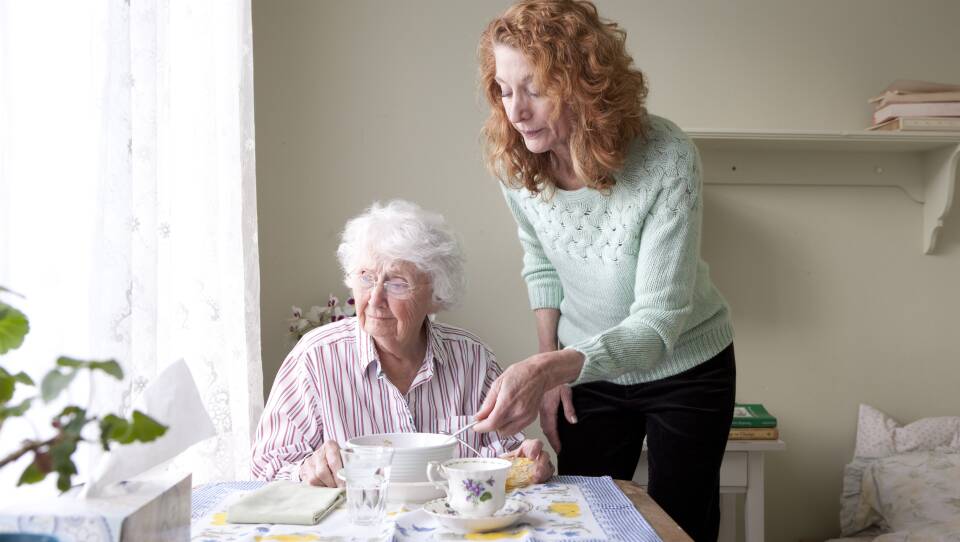A growing number of Americans have found themselves in unpaid caregiving roles since the onset of the COVID-19 pandemic, helping care for family members, neighbors and friends.
“One of the most common phrases we hear is, ‘I'm not a caregiver,’ And then they say, ‘I'm just a daughter,’ ‘I'm just a God-fearing person,’ ‘I'm just a neighbor,’ ‘I'm just a friend,’” Alexandra Drane, co-founder and CEO of the national caregivers platform ARCHANGELS, told Boston Public Radio. “But what we see is that what people are actually doing are things like we might expect [a paid caregiver or home care aide to do].”
Unpaid caregivers are most likely to be young and employed, according to data collected by ARCHANGELS in 2021. Drane noted that many Americans find themselves in these roles when a family member moves in with them, or when they’re tasked with managing finances, transportation and food access.
The majority of unpaid caregivers face mental health issues, which Drane attributes to lack of support. Seventy percent of all unpaid caregivers of adults surveyed by ARCHANGELS in 2021 said they were experiencing depression, anxiety, suicidal thoughts or other mental health issues. That number was even higher — 85% — among adults who were both parents and unpaid caregivers of adults. ARCHANGELS offers a survey to help unpaid caregivers assess their stress levels and find resources.
“Oftentimes, senior daycare centers have closed. Other resources that existed to provide respite of any kind, or coverage of any kind, are gone,” Drane said. “And individuals are being forced to take [caregiving] on full-time.”
“If [unpaid caregivers are] nonessential workers working from home [and are now] being called back into the office, there's often not an infrastructure that exists to support them anymore,” Drane added.
Yet another driver of these mental health issues, Drane claims, is an unstable pandemic economy. From baby formula shortages to rising gas and food prices, unpaid caregivers are struggling to make ends meet.
“Caregivers are already paying, on average, about $7,000 more a year — unpaid, uncompensated — for the person or people that they're caring for,” Drane said. “And so all these prices add up.”
“In the end, if support is not provided, people end up in the ER; they end up having to quit their jobs; they end up in very, very, very hard situations financially,” Drane continued. “And so the argument is, if you can do something preventively to keep someone from coming into [the role of an unpaid caregiver], obviously, that's going to be a win-win. The challenge is right now, these resources are not being made available.”








